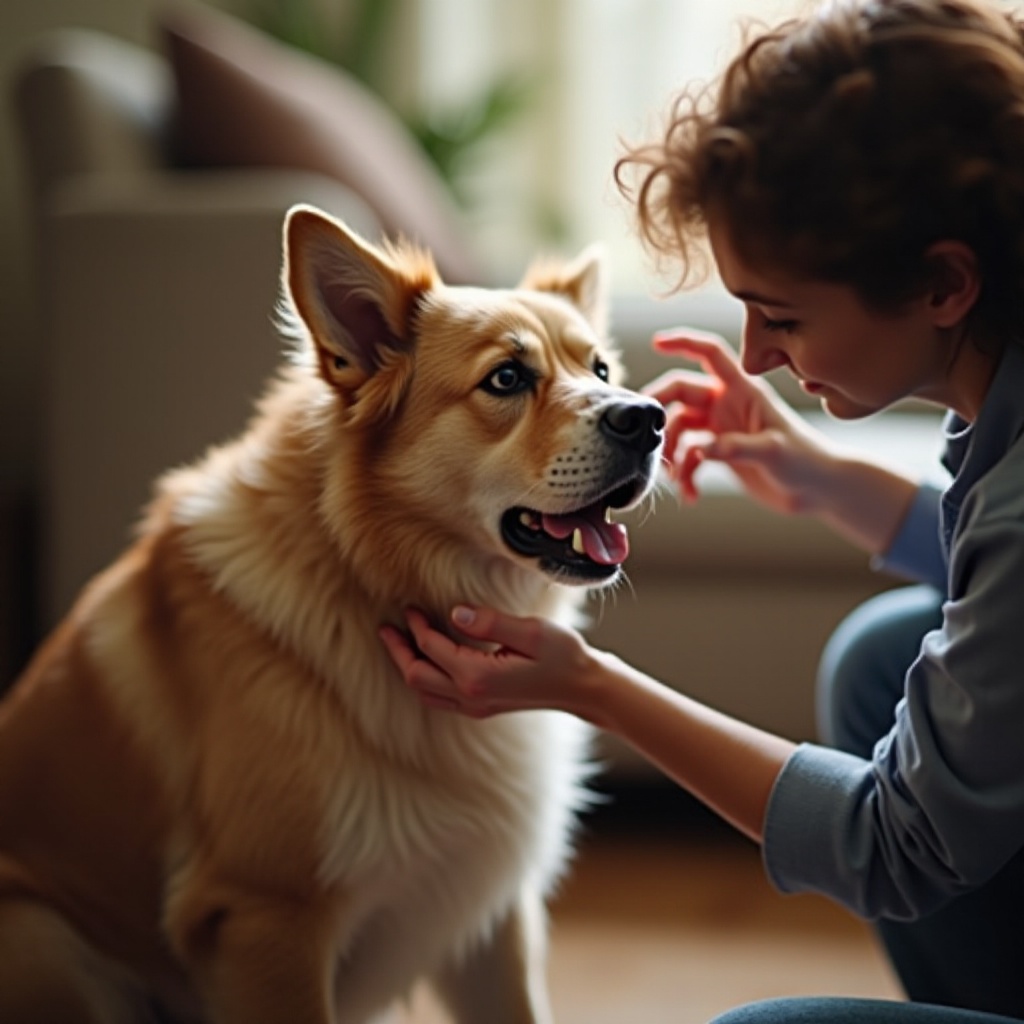Introduction
Old dog diarrhea can be a stressful and potentially serious issue for pet owners. As dogs age, their immune systems may weaken, making them more susceptible to various health problems, including gastrointestinal issues like diarrhea. Properly managing your senior dog’s health can lead to a more comfortable and fulfilling life for both you and your furry friend. This article will cover the causes, symptoms, treatments, dietary changes, and preventive measures to help you effectively address and manage diarrhea in older dogs.

Recognizing the Causes of Diarrhea in Older Dogs
Understanding the root cause of diarrhea in your older dog is crucial for proper treatment. Aging can affect a dog’s digestive system in several ways. Here are some common causes:
-
Dietary Indiscretions: Older dogs may have a decreased ability to tolerate certain foods they previously enjoyed. Changes in diet, the introduction of new foods, or consuming inappropriate items can lead to gastrointestinal upset.
-
Infections: Bacterial, viral, and parasitic infections can disrupt an older dog’s gastrointestinal tract. For instance, infections from bacteria like Salmonella or viruses such as Parvovirus can cause severe diarrhea.
-
Medications: Some medications commonly prescribed to older dogs for various health conditions might have side effects, including diarrhea. Nonsteroidal anti-inflammatory drugs (NSAIDs) or antibiotics, for example, can upset the stomach.
-
Chronic Diseases: Conditions like kidney disease, liver disease, diabetes, and gastrointestinal cancers become more prevalent in senior dogs and can manifest through symptoms like diarrhea.
-
Stress: Older dogs may experience stress due to changes in their environment or routine. Stress can lead to an upset stomach and diarrhea.
-
Food Allergies or Intolerances: Just like humans, dogs can develop allergies or intolerances to certain foods over time, leading to gastrointestinal discomfort.
Recognizing the cause is the first step in treating and managing diarrhea in your older dog. Your veterinarian can help diagnose and recommend the best treatment plan.

Observing Symptoms and Their Importance
Diarrhea in older dogs often presents with other symptoms that can provide clues to the underlying issue. Effective management begins with keen observation of the following symptoms:
-
Consistency and Color of Stool: Diarrhea is usually characterized by loose or watery stools. The color of the stool can provide hints about potential problems. Yellow stools may indicate liver issues, while black or bloody stools can signify more severe problems such as gastrointestinal bleeding.
-
Frequency: Frequent bouts of diarrhea can indicate an urgent issue. If your dog has more than one episode of diarrhea, it’s important to monitor them closely.
-
Vomiting: Diarrhea accompanied by vomiting suggests a more serious gastrointestinal upset, possibly due to infection or ingestion of a toxic substance.
-
Lethargy: An older dog with diarrhea who is also lethargic may be suffering from a more severe condition.
-
Weight Loss: Chronic diarrhea can lead to weight loss over time, which is particularly concerning in senior dogs.
Understanding these symptoms can help you decide when it’s time to seek veterinary care, ensuring your dog’s health and comfort.

Effective Treatment Options
Treating old dog diarrhea effectively involves a combination of home care and veterinary intervention, depending on the severity of the situation. Here are some recommended treatments:
-
Temporary Fasting: For less severe cases, a temporary fast of 12-24 hours can help reset your dog’s digestive system. Always ensure they have access to water during this period.
-
Hydration with Electrolytes: Diarrhea can cause rapid dehydration. Provide plenty of fresh water and consider an electrolyte solution for pets to replenish lost minerals.
-
Bland Diet: After fasting, introduce a bland diet consisting of boiled white rice and skinless chicken. Gradually reintroduce their regular diet as their stool normalizes.
-
Medications: Depending on the diagnosis, your vet may prescribe medications. Anti-diarrheal drugs, probiotics, or antibiotics (if an infection is present) can help resolve the situation.
-
Probiotics: Probiotics can help restore the natural balance of gut flora, promoting better digestion. They are often used in conjunction with other treatments to manage diarrhea.
-
Prescription Diets: Your vet might recommend a specialized diet designed to be easily digestible, providing the necessary nutrients while being gentle on your dog’s stomach.
Importance of Hydration
Diarrhea can quickly lead to dehydration, which is especially dangerous for older dogs. Ensuring that your dog remains hydrated is paramount. Offer fresh water at all times, and consider adding an electrolyte solution to help replenish vital minerals lost due to diarrhea. Keeping a close eye on hydration can prevent complications and promote faster recovery.
Dietary Modifications for Managing Diarrhea
Diet plays a significant role in managing old dog diarrhea. Implementing the right dietary changes can make a world of difference. Start by feeding your pet a bland diet of boiled rice and chicken for a few days, as recommended. Slowly reintroduce their regular food over time.
-
High-Fiber Diet: Incorporate fiber into their diet to bulk up stools. Foods like pumpkin or sweet potato can be beneficial.
-
Easily Digestible Meals: Choose foods that are gentle on the stomach. Commercial diets formulated for sensitive stomachs are worth considering.
-
Probiotic-Enriched Foods: Probiotics can maintain a healthy gut flora balance, essential for good digestion. Include yogurt or specialized dog food containing probiotics.
-
Avoid Allergens: If your dog has known food allergies, eliminate those ingredients from their diet.
When to Seek Veterinary Care
While mild cases of diarrhea may resolve with home care, always be cautious and contact your vet in the following scenarios:
- Persistent Diarrhea: If diarrhea persists for more than a few days.
- Severe Symptoms: If your dog exhibits symptoms like vomiting, lethargy, or blood in the stool.
- Underlying Conditions: If your dog has a pre-existing condition that could be exacerbating the diarrhea.
Professional help ensures that your dog receives the necessary treatment and care.
Preventive Measures for a Healthy Senior Dog
Prevention is always better than cure. Implementing these measures can help keep your older dog healthy and prevent diarrhea:
- Regular Vet Check-ups: Ensure your dog gets routine health check-ups to catch any potential issues early.
- Consistent Diet: Maintain a consistent, balanced, and age-appropriate diet for your dog. Avoid sudden food changes.
- Limit Table Scraps: Human foods can cause gastrointestinal issues in dogs. Stick to dog-specific treats.
- Hydrate Regularly: Always provide access to fresh, clean water.
- Monitor Stress Levels: Minimize stress factors in your dog’s life, as stress can impact their digestive system.
These preventive steps can contribute to a healthier, happier life for your senior dog.
Conclusion
Managing diarrhea in older dogs requires vigilance, proper care, and sometimes veterinary intervention. By understanding the causes, recognizing the symptoms, and taking appropriate measures, you can ensure your furry friend stays healthy and comfortable.
Frequently Asked Questions
What should I feed my old dog with diarrhea?
A bland diet of boiled white rice and skinless chicken is recommended initially. Gradually reintroduce their regular diet once the diarrhea subsides, and consult your vet for long-term dietary adjustments.
How can I tell if my old dog’s diarrhea is serious?
If diarrhea persists for more than a few days, is accompanied by symptoms like vomiting, lethargy, or blood in the stool, or if your dog has pre-existing conditions, contact your vet immediately.
Are there natural remedies for treating old dog diarrhea?
Yes, some natural remedies include feeding your dog pumpkin or adding probiotics to their diet. However, always consult your vet before trying any new treatment.
